1. Never Ride Another Man’s Horse
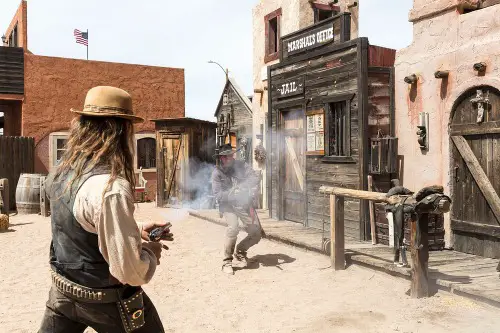
The Wild West didn’t rely on written laws. Instead, they relied on The Code of the West, and riding another man’s horse without his permission was considered one of the most serious breaches of the unwritten code in the Wild West. Horses were incredibly valuable—both for practical reasons and as a symbol of a man’s status. So, to take someone else’s horse was seen as a direct challenge to their dignity and livelihood. This was not just about theft; it was a matter of respect. In fact, stealing a man’s horse was as serious as stealing his wife, and it could have deadly consequences. A horse thief could expect swift, and often lethal, retribution.
The bond between a cowboy and his horse was sacred. A cowboy’s horse wasn’t just transportation—it was his partner in the harsh and unforgiving wilderness. It helped him round up cattle, cross rugged terrain, and survive in conditions where the land could turn hostile at a moment’s notice. Taking another man’s horse was not only a crime against the man but against the cowboy spirit itself. And this is why it was one of the most severe violations of the Code of the West.
2. Never Make an Idle Threat

The Wild West was a place where words often carried weight—sometimes more than physical actions. If you made a threat, you had better be prepared to follow through, according to Cowboy Showcase. In a place where law and order were often a luxury, threats were not taken lightly. A challenge to a man’s honor could be met with a fast draw and no second chances. This wasn’t just about violence; it was about the value placed on one’s reputation and the understanding that your word was everything. Threatening someone without the intention of acting on it could make you a target for retaliation.
Cowboys and outlaws alike knew that empty words could have deadly consequences. It was a matter of pride, and in a world where survival was often uncertain, being perceived as a man who would back down from a threat could destroy your standing. The idea was simple: if you made a threat, you’d better be ready to face the consequences of it. The Wild West was unforgiving to those who couldn’t back up their words with action.
3. Don’t Inquire Into a Person’s Past
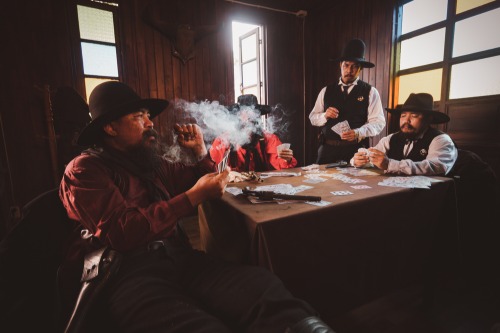
In the Wild West, the past didn’t matter as much as who you were today. People lived hard, and many weren’t eager to share their previous lives. Your reputation was built by how you treated people now, not by what you had done before. In fact, asking about a person’s past could make you look nosy, and in some cases, it could even get you into trouble. The general idea was: let someone be who they are in the present, and don’t dwell on where they came from. In a world where people were constantly on the move, it was seen as disrespectful to dig too deeply into someone’s history. You either respected a person for what they were today or you didn’t, and that was the end of it.
If you were curious about someone’s past, you could likely find out through the local grapevine—but it wasn’t something that was openly discussed. Cowboys and settlers knew the importance of not asking questions that could lead to awkward or dangerous revelations. This unwritten rule created a society based on the present, and in a way, it allowed people to reinvent themselves as they moved from town to town.
4. Don’t Order Anything Weaker Than Whiskey
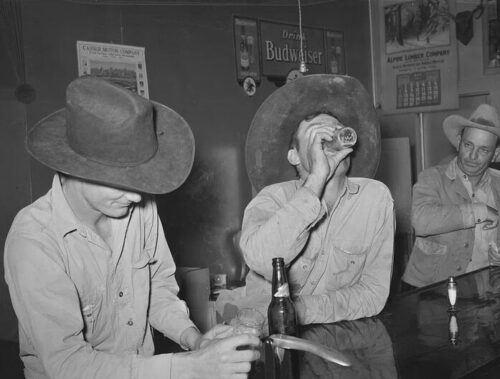
In the Wild West, a man’s drink was an extension of his personality. According to COWGIRL Magazine, if you were in a saloon, ordering anything weaker than whiskey was considered a sign of weakness or lack of grit. Whiskey wasn’t just a beverage—it was a statement of toughness and fortitude. People in the Wild West were known for their hard-living ways, and the idea was that you needed something strong to keep up with the demands of the frontier. Ordering anything less than whiskey, whether it was beer or something softer, was seen as a signal that you weren’t cut out for the rugged life.
The saloons were the social hubs of the frontier, and there was an unwritten expectation that you’d drink with courage. Whiskey was considered the drink of choice for cowboys, gamblers, and lawmen alike. It was the drink that kept a man going during long, hard days on the trail and even longer nights of card games and storytelling. So, if you found yourself in a Wild West saloon, you’d better be prepared to match the drink with the reputation you were trying to build.
5. Don’t Pass Anyone on the Trail Without Saying “Howdy”
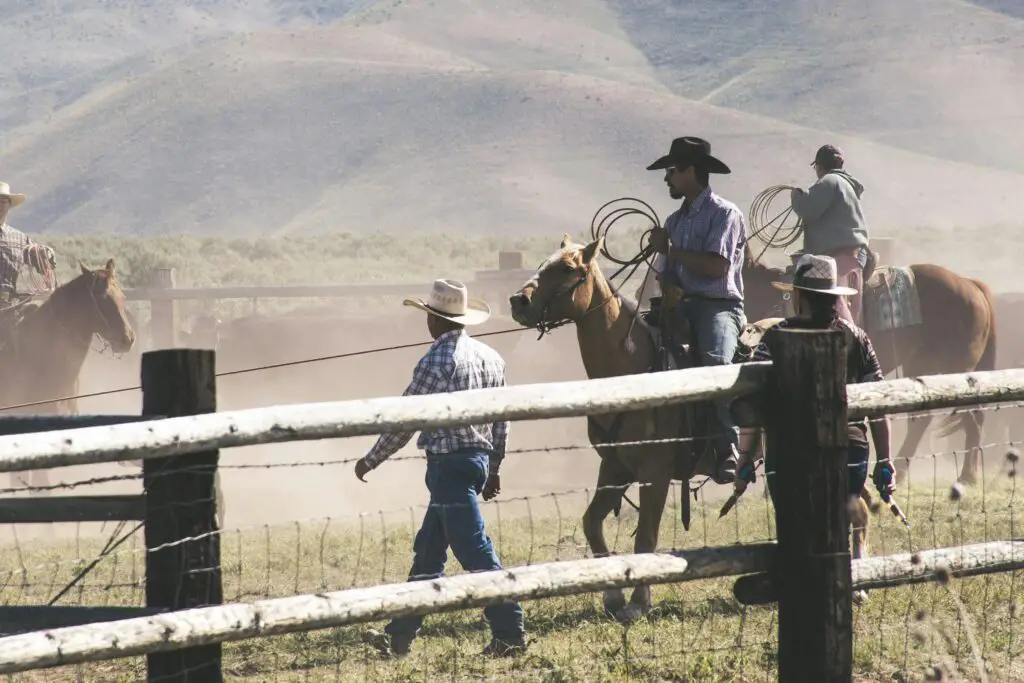
In the open expanses of the Wild West, a simple greeting could mean a lot. Passing someone on the trail without acknowledging them was seen as disrespectful and unneighborly, according to Yallogy. It was important to show courtesy and to make sure that even strangers felt welcome in a world that could often feel cold and hostile. Saying “Howdy” was more than just a greeting—it was a sign of mutual respect. It was also considered bad form to pass someone without saying it, as doing so could make them feel as though you didn’t trust them.
In such a tight-knit and sometimes dangerous environment, acknowledging one another was vital for maintaining peace and order. If you passed someone and didn’t say “Howdy,” it could be seen as a sign of animosity or suspicion. The unwritten rule was to acknowledge another person’s presence with kindness, but also with an understanding that trust was a currency that had to be earned. And, once you passed someone on the trail, don’t look back—this implied that you didn’t trust them, and in the Wild West, trust was everything.
6. Don’t Wave at a Man on a Horse
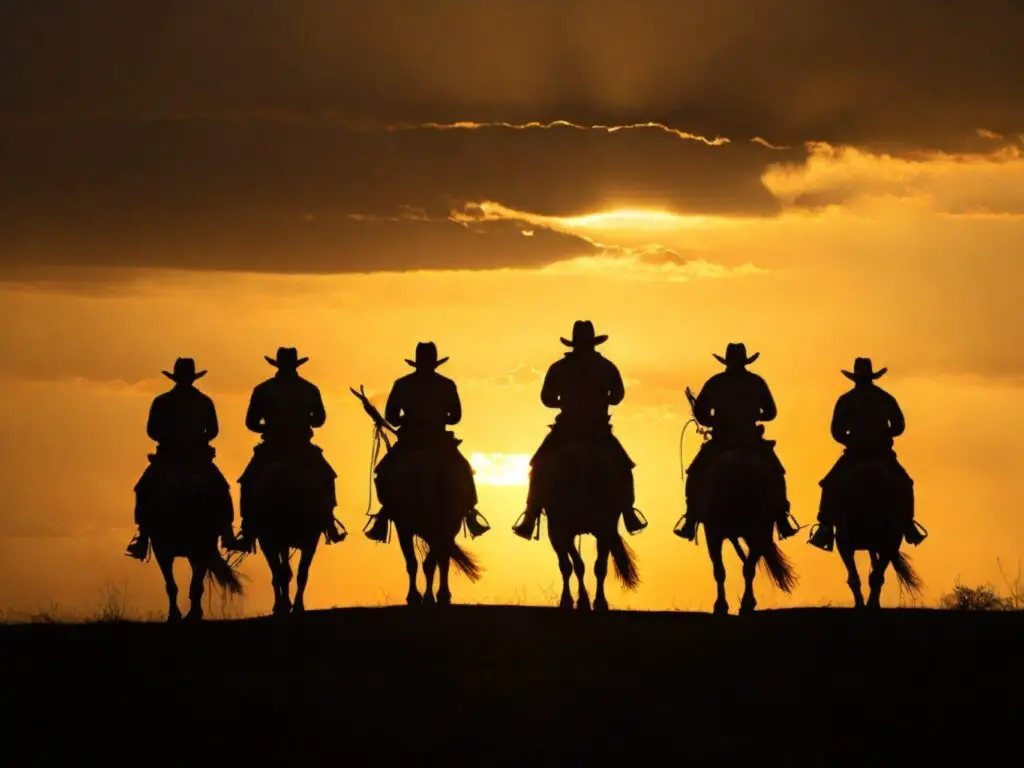
A wave might seem like a friendly gesture, but in the Wild West, waving at someone riding a horse was considered a major mistake. The motion could easily spook the horse, which could lead to an accident, Ducksters explains. Horses were precious, and their safety was a top priority. Instead of waving, a nod was the proper greeting. A nod was subtle and wouldn’t startle the horse. The unwritten rule here was simple: always be mindful of the horse and its rider’s needs.
For a cowboy, his horse wasn’t just a mode of transportation—it was his lifeline. If something happened to the horse, it could mean the difference between life and death. So, being aware of how your actions could affect another person’s horse was critical. While waving might be a friendly way to greet someone in other places, in the Wild West, it was better to keep your hands still and greet the person with a respectful nod. This was just one of the many ways people of the Wild West were conscious of the dangers around them.
7. Real Cowboys Don’t Talk Much

The Wild West was a place of action, not words. Cowboys were known for being men of few words. The idea was that talking too much could make you look soft or unreliable, and a cowboy was expected to be tough, quiet, and reliable. A real cowboy wasn’t interested in talking about himself; he preferred to let his actions speak for him. Cowboys who rambled on or boasted about their accomplishments weren’t held in high regard. The general idea was to save your breath for the real work—like riding, roping, and surviving.
Being silent wasn’t about being rude—it was about focusing on the task at hand. The wilderness and the cattle didn’t need a lot of chatter. When it came to interacting with others, the few words that were spoken were typically straight to the point. Cowboys knew that their reputation wasn’t made by the number of words they said, but by their ability to get things done without unnecessary conversation. This unwritten rule helped preserve the rugged and stoic image of the cowboy.
8. Always Tend to Your Horse Before Yourself

After a long day on the trail, no matter how tired or hungry you were, the first thing a cowboy did was tend to his horse. Horses were the backbone of cowboy life, and a good cowboy knew that his horse’s needs came before his own. This meant feeding, grooming, and caring for the animal before taking care of personal comfort. A cowboy’s success and survival depended heavily on the well-being of his horse, so neglecting it was a major violation of the unwritten code.
This principle wasn’t just practical; it was a matter of honor. A cowboy who neglected his horse was seen as selfish or irresponsible. Horses, after all, were often the only companions a cowboy had in the vast, open frontier. They were worth more than gold, as they provided the strength and endurance needed to get through each day. So, taking care of your horse wasn’t just good sense—it was a reflection of the man you were. No matter how exhausted you felt, your horse’s needs came first.
9. Cuss All You Want, But Only Around Men, Horses, and Cows
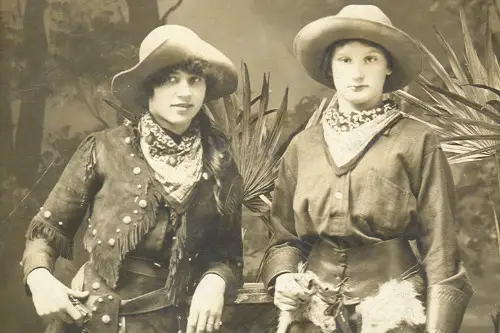
In the Wild West, cursing was something you could do without judgment—if you were in the right company. The unwritten rule was that cussing was acceptable around men, horses, and cows, but you needed to be careful about where and when you used it. It wasn’t about being vulgar for the sake of it; swearing was often a way to express frustration or toughness. But, it was considered bad form to curse in front of women or children, as it was seen as improper and disrespectful. In fact, the idea was to use colorful language where it wouldn’t offend anyone, and it was often an expression of the harsh environment people lived in.
Out on the trail, when things were tough or things didn’t go as planned, a string of curses was a way to let off steam. But you had to know the limits—if you cursed in front of the wrong crowd, it could be seen as a lack of respect. Around men, it was understood; around animals, it was natural. In the Wild West, language was a tool, but like everything else, it had to be used wisely.
10. Never Complain or Practice Ingratitude
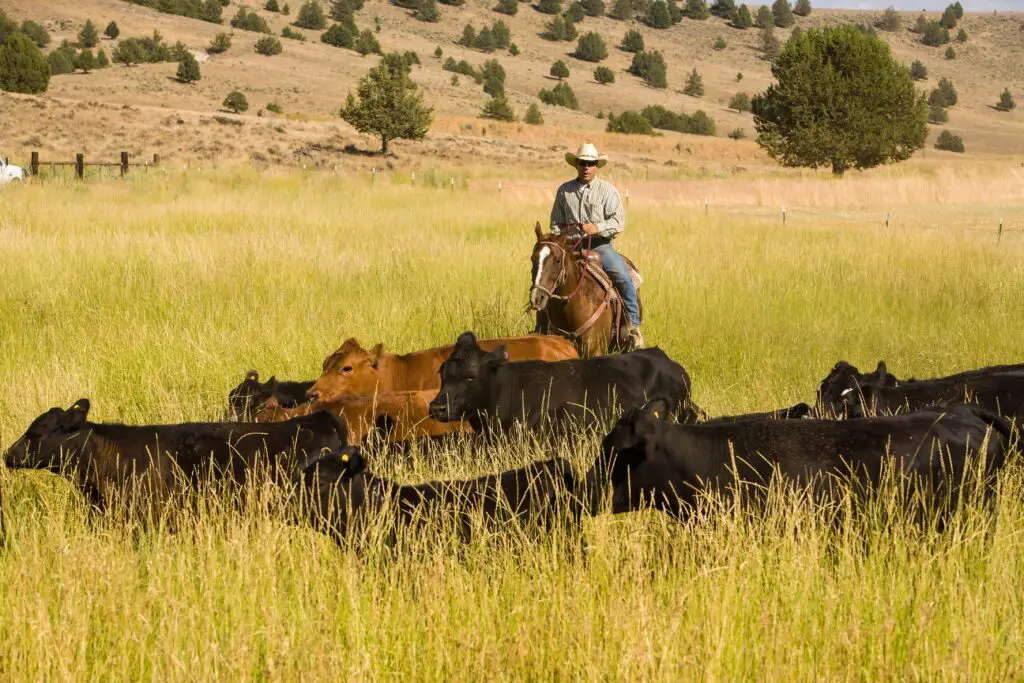
In the Wild West, complaining was considered the act of a quitter, and cowboys didn’t tolerate quitters. Life on the frontier was incredibly tough—weather, animals, the land, and sometimes even other people could work against you. Yet, no matter how hard things got, complaining was seen as a sign of weakness. Cowboys were expected to endure, to face adversity with grit and resilience. A cowboy who complained wasn’t just frowned upon; they were seen as someone who wasn’t cut out for the life they had chosen.
Ingratitude was also highly discouraged. If someone helped you out in a tough spot, you owed them respect and acknowledgment. The harsh conditions of the frontier meant that a sense of community was vital, and practicing gratitude for the help you received kept that bond strong. Whether it was help with a herd of cattle or lending a hand in building a shelter, showing gratitude was essential to survival. A man who didn’t give thanks for favors or who constantly grumbled was seen as someone who didn’t belong in the cowboy community.
11. Always Be Courageous
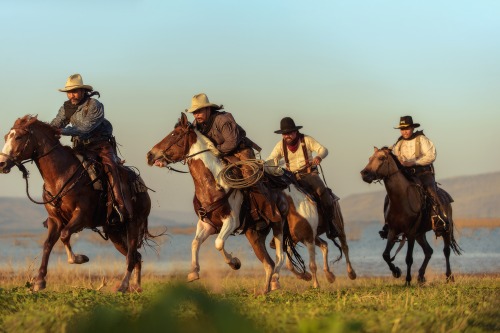
The Wild West wasn’t a place for the faint of heart. Courage was considered one of the most important qualities a cowboy could have, and showing cowardice could lead to serious consequences. Cowboys were expected to face danger head-on, whether it was a gunfight, a stampede, or a wilderness challenge. Those who showed fear were often labeled as “no good,” and their reputation would be irreparably damaged. A coward wasn’t just someone who backed down in the face of physical danger; they were seen as someone who couldn’t be relied upon in tough situations.
The cowboy ethos was built around the idea of standing tall, no matter the odds. Facing danger without hesitation was the ultimate test of a cowboy’s character. Courage wasn’t just about fighting or bravado—it was about resilience in the face of hardship, whether physical or emotional. A cowboy who lacked courage would find himself isolated from the rest of the group, as no one would trust a man who wasn’t willing to stand firm when it mattered.
12. A Cowboy Always Helps a Stranger or an Enemy in Need

While the Wild West was known for its lawlessness and sometimes violent reputation, there was also a strong sense of duty toward others. One of the key principles of the unwritten code was helping others, whether they were friends or enemies. If you came across someone in need of assistance, you were expected to offer a hand, regardless of whether they had been kind to you in the past. This could mean helping a fellow cowboy who had been thrown from his horse, or it could mean offering food to a man you didn’t particularly like.
This principle of helping others wasn’t just about charity—it was about proving your honor and showing the world that you could be trusted. It was understood that everyone, at some point, might need help. So, if you had the ability to provide assistance, it was your duty to do so. In the harsh and often dangerous environment of the Wild West, this sense of mutual aid helped build a code of respect and loyalty that transcended personal grievances.


